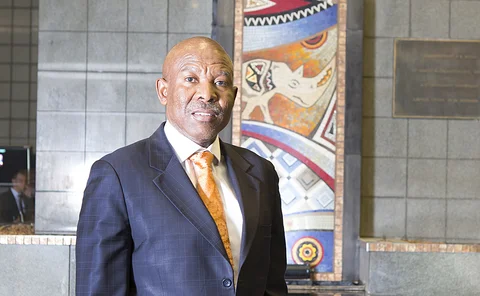
Christopher Jeffery
Editor-in-chief, Central Banking Publications
Christopher Jeffery is Editor-in-chief of Central Banking. He has a global role and is responsible for Central Banking’s editorial content and teams, which includes the Benchmarking Service and Central Banking Journal. He has more than 20 years of journalistic experience covering asset management, banking, central banking, derivatives, economics, finance, fintech, payments, public policy, risk management and strategy. Now based in London, Chris has previously worked in both the Americas and Asia. Chris is Co-founder of the Central Banking Benchmarking Service and Founder of the Central Banking Awards. He was previously Editor of Asia Risk; Deputy Editor, European Editor and News Editor of Risk.net; and Managing Editor at Lafferty Publications.
Follow Christopher
Articles by Christopher Jeffery
Renato Gomes on Pix, Drex and digital asset regulation
Brazil’s deputy governor speaks with Christopher Jeffery about pros and pitfalls of open finance, financial inclusion and crime on Pix, and the need to sideline DLT for Drex phase 3
Richard Doornbosch on central banking in a tempestuous climate
The president of the Central Bank of Curaçao and Sint Maarten speaks to Christopher Jeffery about addressing legacy financial scandals, transition to a Caribbean guilder, tapping gold holdings and managing a currency peg at a time of US policy uncertainty
The prospects for retail CBDCs
Open instant payments systems offer a quicker route to financial deepening, for now
Lesetja Kganyago on a 3% target and risks posed by rising debt in a fractured system
The Sarb governor speaks about a lower inflation target, the impact of high developed-world debt, the G20’s payments efforts and the fracturing of the multi-lateral system
Alexandre Tombini on LatAm resilience and growth amid uncertainty
The BIS Americas head speaks about the impact of the US tariffs, building resilience amid uncertainty and fostering inclusion through digital payments
Working group minutes: rethinking dollar reserves
Central banks are seeking ways of mitigating geopolitical risk while maintaining dollar exposures
- Benchmarking
A not-so-stable Genius Act?
New stablecoin rules raise monetary sovereignty and financial stability concerns
Tobias Adrian on the integrated policy framework amid tariff shocks
The IMF’s financial counsellor speaks about policy reaction functions to supply and demand shocks, scenario-based analyses, Treasury market dynamics and emerging market resilience
Boris Vujčić on Croatia’s economic journey, the digital euro and the Governing Council
The Croatian National Bank (HNB) governor speaks with Christopher Jeffery about managing financial risks, the pros and cons of euro adoption, payment system reform and the use of real-time data
Ex-OCC chief Michael Hsu on the impact of an America-first agenda
The former acting comptroller of the currency speaks with Christopher Jeffery about the future of the US Treasury market, Fed independence, financial de-regulation, the Genius Act and international co-operation
Paraguay’s Carvallo Spalding on resilience and cutting its inflation target
The Central Bank of Paraguay (BCP) governor speaks about lowering the inflation target to 3.5%, opening up to foreign investors and promoting inclusion through digital payments
A fireside chat with BIS head Agustín Carstens
The lifetime achievement award-winner speaks with Chris Jeffery about how experiencing inflation shaped his career, gaps in economic theory and macro-pru governance, the future of money and the importance of international co-operation











